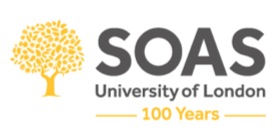Time: 13:00-15:00 (UK Time), Wednesday, 13 October 2021
Presenter: Prof. Dirk Willem te Velde, ODI & SOAS University of London, UK
Co-authors: Phyllis Papadavid, Asia House & Sherillyn Raga, ODI
Chair: Professor Victor Murinde, SOAS University of London
Online venue: Click here to join the seminar on Microsoft Teams (For any inquiry about how to join the online seminar, please contact Dr Meng Xie: xm1@soas.ac.uk)
Abstract
This framework paper addresses conceptual issues and broad empirical regularities on human capital development and FDI in Africa. There are many links between FDI and human capital: human capital helps to attract FDI and vice versa FDI can help to develop human capital. We show for a sample of 91 countries over 1970-2015 that inward FDI supports human capital development by supporting education enrolment rates, especially at secondary and tertiary levels, both independently from and through income effects. The results are stronger the higher the level of initial skills endowments, and are robust to measures of FDI that account for possible endogeneity. However, the effects are less strong in Africa where the interaction between FDI and initial skills endowment has become insignificant, especially since 2000. We argue that this can in part be explained by the type of FDI that has been attracted to Africa after 2000, including FDI in natural resources and construction which may not have had the positive synergies between FDI and human capital (separate from income effects) we have seen in other developing countries. The use of sector example around garments, ICT, and natural resources allowed us to explore more deeply the relationship between different types of firms and different types of education, skills and human capital. We argue that the impacts of inward FDI on education depends on sector and the policy and institutional context. Country case studies can ask a range of question to further explore the detailed links between FDI and human capital at country level, and build on the richness which already emerged from a review of sector experiences.
Presenter
Prof. Dirk Willem te Velde
Professor te Velde joined CGF as Professor of Practice in 2021. He is a Principal Research Fellow and Director for International Economic Development at ODI. He directs the Supporting Investment and Trade in Africa (SITA) and Supporting Economic Transformation (SET) Programmes and is Research Leader in the FCDO – ESRC Growth Research Programme. He has written and edited 20 books/monographs, 30 peer reviewed articles and 40 book chapters, related mainly to investment, trade and economic transformation. His research has featured in the BBC, China Daily, The Economist, the Financial Times, the Guardian, Asian and African newspapers and TV, with hundreds of media hits. In terms of pathways to research impact, he has advised donor agencies (incl. FCDO, SIDA, and Dutch Ministry of Foreign Affairs), both houses of UK parliament (including as a specialist advisor to development finance inquiries) and government ministers ranging from Kenya, Tanzania, Ethiopia to Bangladesh and Nepal, and multilateral bodies (incl. IFIs and UN agencies). He is a member of the UK Government Strategic Trade Advisory Group (advising the Secretary of State and Trade minister) and leads a Bangladesh trade capacity building project. He holds a degree from the University of Groningen and a PhD in economics from Birkbeck, University of London.
Co-authors
Phyllis Papadavid
Phyllis Papadavid is Head of Research and Advisory at Asia House. Phyllis is a leading international economist and financial strategist with extensive research experience across the private and public sectors. She leads Asia House’s Research and Advisory work, driving the organisation’s research agenda and directing projects. Before joining Asia House, Phyllis was a Research Associate and formerly head of international macroeconomics at the Overseas Development Institute, and held leadership roles at BNP Paribas and Societe Generale CIB, and has advised the Government of Mongolia. She has also advised multilateral organisations including the World Bank and the United Nations. Phyllis is an associate faculty member in Applied Analytics and Strategy at Columbia University.
Sherillyn Raga
Sherillyn is a Senior Research Officer in ODI’s International Economic Development Group specialising in macroeconomics, finance and structural transformation. She previously worked with the Bangko Sentral ng Pilipinas where she prepared the central bank’s policy positions on issues related to the Association of Southeast Asian Nations’ (ASEAN) financial integration, bilateral cooperation and regional capacity-building initiatives. Sherillyn was also a Research Associate at the International Monetary Fund (IMF) where she contributed to macroeconomic surveillance reports and working papers on the evolution of monetary policy and global spillovers, and became a team member of the IMF Article IV Mission to Palau.She also worked with the Asian Development Bank (ADB) in Papua New Guinea where she provided an analysis of the inflationary impact of the exchange rate policy and preliminary assessment of selected ADB projects. Sherillyn obtained her economics degree from the University of the Philippines and her MSc in economics for development degree at Oxford University.




